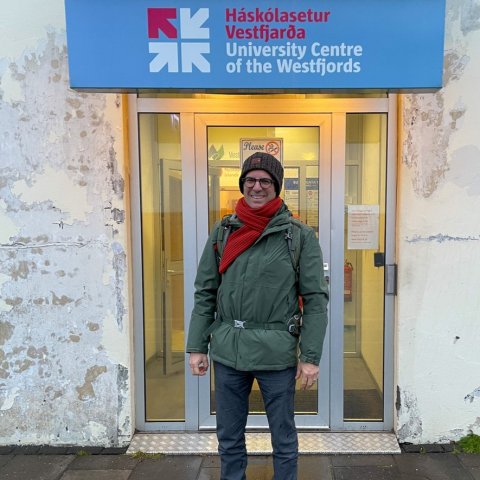Here below you can find all master courses the University Centre offers. All courses are taught in 1-3 week modules running from August through June. See how the courses are organised in the teaching schedule for both programs. Usually 2-3 courses are taught at the same time, but students may only enroll in one course at a time.
The master courses are available to you whether you plan to pursue a degree or just take a course or courses. Please review the options for guest studies to determine how you can apply.
For further information, contact the Administrative Director of Education and Teaching.
Regional transformation and development: Sociological theories and practices
- Autumn 2024
- Instructor: Dr. Joost Dessein
About the course
The course discusses the topic of regional transformation and development from socio-political and sociological perspectives. Drawing on a broad set of international examples, it provides students with conceptual as well as practice-oriented classes that allow them to understand regional transformation. Students contribute to debates about regional development and engage in multi-stakeholder processes on regional development.
Instructor
is an associate professor at the department of Agricultural Economics (Ghent University, Belgium), an affiliated member of the Centre for Sustainable Development (UGent) and a promotor of the recently established Urban Academy. He holds an Msc in Agricultural Engineering and a Msc and PhD in Social and Cultural Anthropology, all of which obtained at the Catholic University of Louvain (Belgium).
Joost chairs the research group on Institutional, Socio-economic and Political Issues in Rural-urban Areas (INSPIRA). The main focus of INSPIRA is the study of rural and urban development processes in the food system . The research group tackles different issues related to food governance, social and environmental justice, knowledge systems, economic development, and food production and markets. Building synergies within the research group, as well as with other partners, is part of the strategic orientation of the INSPRIA, as we believe that co-creation, synergy and interdisciplinarity are necessary key-elements of a state-of-the-art research group.
Joost’s teaching and research expertise lies in the fields of Sociology of Agriculture, Food and Rural Development. Teaching courses such as ‘Sociological perspectives on rural development’, ‘Food policy’, ‘Sustainable Food Systems’ or a course on scientific communication, Joost inspires his students to become critical and reflexive researchers and professionals. Ongoing research includes the governance of urban food systems (Ecuador, Tanzania, Belgium, the Netherlands); the mobilising power of agroecology as a (counter-hegemonic) movement and practice (Bolivia, Argentina, Europe); the recognition and valorisation of Traditional Ecological Knowledge (TEK) in processes of food system innovation (Ghana) and regional development (Belgium, Europe); and dynamics in the Agricultural Knowledge and Innovation System AKIS (Ethiopia, Belgium).
In July 2019, he was elected as President of the European Society for Rural Sociology, the leading European organisation for rural sociology.

Learning outcome
On completion of the course a student:
- can critically read and discuss scientific literature related to regional transformation and development.
- can critically assess the role of discourses in regional transformation and development.
- can operationalize and apply theoretical concepts of regional transformation and development in the design of a participatory multi-stakeholder process.
- can present in layman’s terms scientific insights related to regional transformation and development.
Prerequisites: No prerequisites registered for the course
Assessment: 10% Class participation; 40% class assignments and 50% final project
Final Exam: Assignment